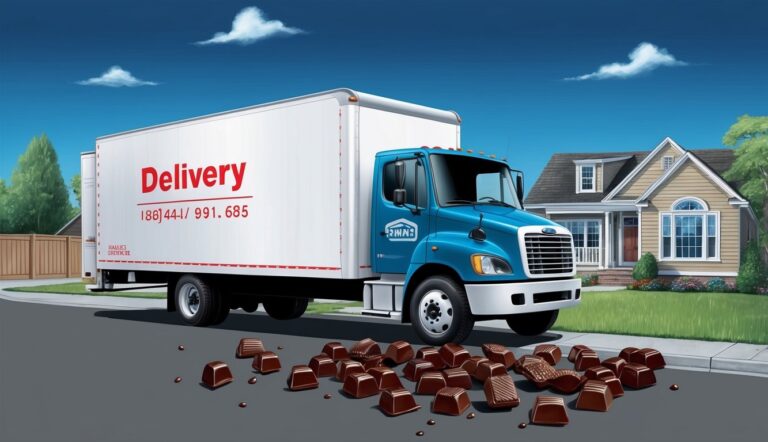In a recent decision by the Virginia Workers’ Compensation Commission (WCC), it was concluded that Ronald Mark, who injured himself while trying to protect chocolate candies from the heat in his employer’s delivery truck, will not receive workers’ compensation benefits.
WCC Ruling on Employment Scope
The WCC supported the deputy commissioner’s earlier ruling, which determined that Mark’s actions were outside the scope of his job when the injury occurred.
This incident took place as he was unloading chocolates from the delivery truck, which was parked at his home.
Under workers’ compensation law, injuries must happen “in the course of employment” to be eligible for benefits, and officials found Mark’s actions did not meet this criterion.
Typically, Mark stored the delivery truck at his residence, often loaded with coffee and snacks destined for the next day’s deliveries.
However, his employer, Compass Group, was not informed that Mark sometimes brought items into his home for safekeeping.
Details of the Incident
On September 15, 2023, Mark had just finished his last delivery and stopped by his employer’s warehouse to pick up goods for the following Monday.
After parking the truck in his driveway that evening, he enjoyed a couple of beers but insisted that he was still sober.
With higher temperatures expected over the weekend, he felt it necessary to bring the chocolates inside, given the non-functioning freezer in the truck.
Notably, he admitted he had not previously discussed this practice with his employer, though they had not expressly prohibited it.
As the clock approached 7:15 p.m., Mark slipped while trying to retrieve the chocolates from the truck, injuring his left knee on the truck’s ledge before tumbling onto the concrete.
He sought medical attention for the injury soon after.
In a conversation with his supervisor, Mark explained that he was simply trying to organize the truck and address his concerns regarding the heat and the candy.
Commission’s Conclusion and Dissent
Yet, both the deputy commissioner and the majority of the WCC deemed there was a lack of evidence that Mark was acting within his employment responsibilities at the time of his accident.
They pointed out that nearly five hours had elapsed since he parked the truck, marking the end of his official workday.
Additionally, he had not received directions to retrieve items from the vehicle, nor had he informed his employer about his intentions.
His recent alcohol consumption further complicated the legitimacy of his claim.
The WCC maintained that for any injury to be compensable, it must occur in a location where the employee could reasonably be expected to be while conducting work-related duties.
They concluded that Mark’s actions were disconnected from his job responsibilities, thus falling beyond the bounds of his employment.
However, a dissenting voice from one commissioner offered a different perspective, suggesting that Mark’s line of work could reasonably involve returning to the truck after completing tasks and before starting again.
This commissioner referenced a ruling from the Virginia Supreme Court, indicating that even voluntary actions linked to job responsibilities might still qualify for compensation, regardless of whether the actions were explicitly instructed.
This dissenting opinion posited that, although Mark had finalized his deliveries and picked up merchandise for the day, his retrieval of chocolates for home storage could still be seen as part of his job scope at the time of injury.
Following the ruling, Mark now has the option to appeal the WCC’s denial of benefits to the state Court of Appeals.
Source: Insurancejournal.com






